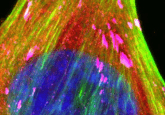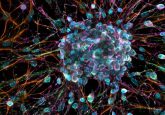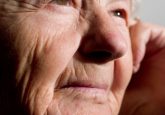ASCO18: Age-related concerns in cancer patients – geriatric assessment improves doctor-patient communication

Researchers at the University of Rochester (NY, USA) have demonstrated that the use of geriatric assessment in routine care of older adults with advanced cancer significantly improved doctor-patient communication about age-related concerns as well as patient satisfaction with the communication.
Recently highlighted at 2018 American Society of Clinical Oncology (ASCO) Annual Meeting held 1–5 June 2018 in Chicago (IL, USA) the geriatric assessment aimed to evaluate health-related concerns common among older adults. In this study the assessment included a standardized, written questionnaire and objective tests for physical performance and cognition.
First, researchers randomly assigned 31 community oncology practices to geriatric assessment group or usual care group. Second, the information of 542 patients was collected. All patients were age 70 or older, with incurable, advanced solid tumors or lymphoma, and had impairment in at least one measure on the geriatric assessment performed at study enrolment.
The measures included function, physical performance, comorbidities, nutrition, social support, depression and cognition.
Although all patients were evaluated, only oncologists at practices randomly assigned to the intervention arm received the results of the geriatric assessment. Researchers found that doctors who received geriatric assessment results before meeting with their patient were more likely to discuss age-related concerns and recommend interventions to address them.
“As oncologists, we need to step away from focusing solely on the cancer, especially in our older patients. While living longer is important, there are many non-cancer related health issues that are as, if not more, important,” commented Supriya Gupta Mohile (University of Rochester). “Both patients and their caregivers clearly want the oncologist to discuss age-related concerns. Our study shows that geriatric assessment can help oncologists meet these needs for their older patients.”
The next steps are to evaluate if the interventions resulting from geriatric assessments have a positive effect on patient function and quality of life, as well as caregiver satisfaction and quality of life. A separate ongoing study is evaluating if geriatric assessment can reduce chemotherapy side effects by improving decision making for older patients with advanced cancer. There are several other randomized clinical trials underway evaluating the effects of geriatric assessment on other outcomes.





